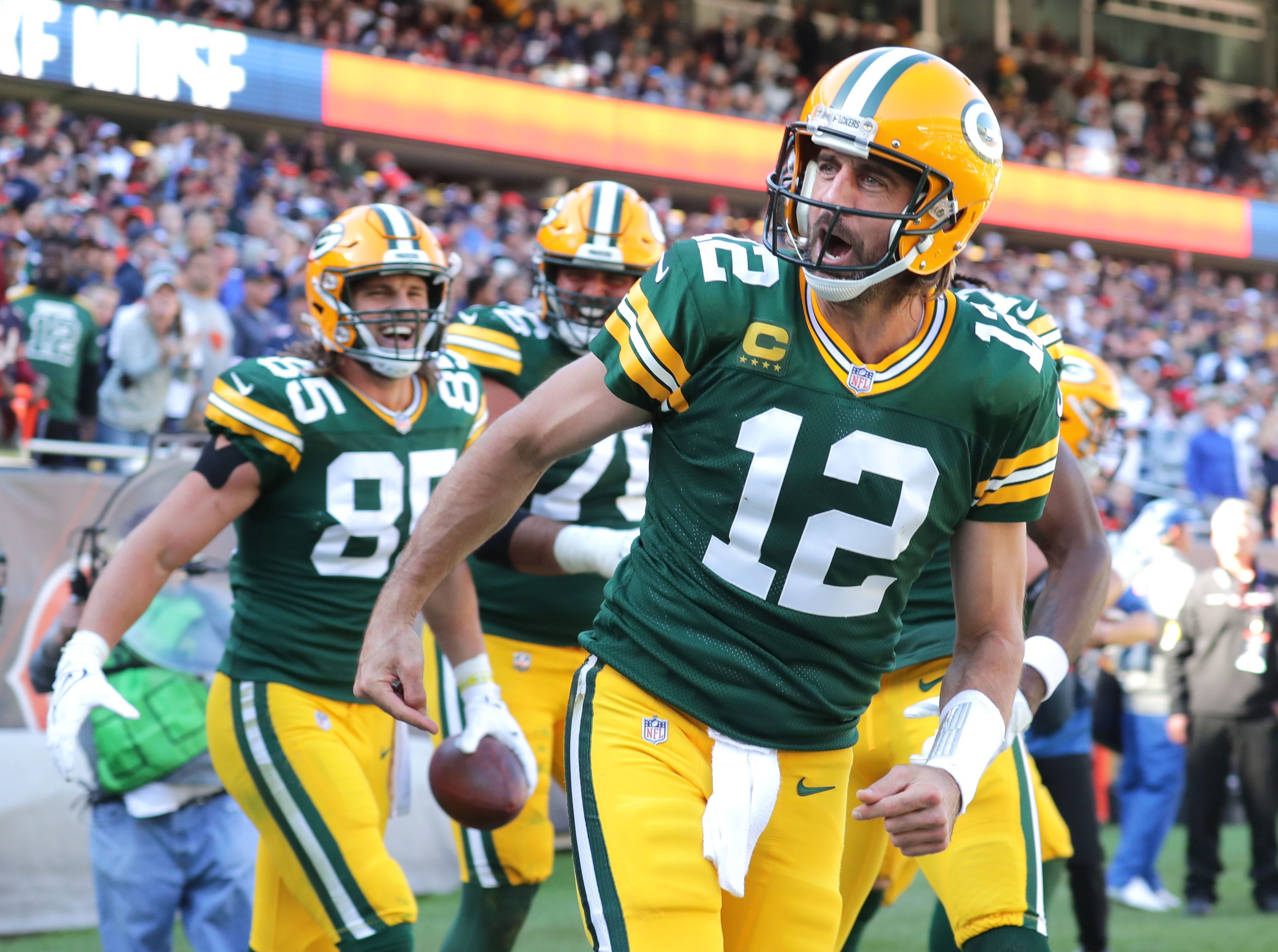Longtime Packers assistant coach Tom Clements thought his NFL career was over. Then Aaron Rodgers called.

GREEN BAY, Wis. – Tom Clements was enjoying the good life, sipping Peniro beer with vino on the side while hanging out with his dog, when Aaron Rodgers interrupted his longtime quarterback coach’s retirement this offseason.
The Green Bay Packers coaching staff was in exodus. Nathaniel Hackett had been hired to be the Denver Broncos' head coach, taking his PowerPoint skills and Austin Powers references with him. Luke Getsy was now a rival, banking his two years as Rodgers’ position coach into the Chicago Bears’ offensive coordinator job.
Weighing his future, Rodgers called to gauge his mentor’s interest in a reunion. For 11 seasons, Clements guided Rodgers’ progression, from Brett Favre’s backup to heir, from first-round prospect to first-ballot Hall of Famer. With so much upheaval on the staff, Rodgers wanted to reconnect with someone familiar.
Clements, naturally, wanted to know who he’d be coaching.
“That,” Clements said, “was my first question to him: ‘What are you thinking?’ Then we just talked about it, and I felt good, fairly confident that he was coming back.”
In the latest example of how the Packers organization has flipped, allowing Rodgers to influence decisions affecting his job, Clements became the first domino in the four-time MVP’s return. After hanging up the phone with Rodgers, head coach Matt LaFleur was next. Clements spoke with his new boss a couple times, including at the NFL Honors in Los Angeles, where he lives.
Around the time Rodgers expressed how much he would miss Hackett and Getsy after receiving his second straight MVP, LaFleur was bonding with the veteran position coach who would secure his quarterback’s return. LaFleur said Rodgers had a “significant role” in hiring Clements, but he did not know the veteran quarterbacks coach well. The two had lunch before the Super Bowl, getting acquainted to determine whether it would be a good fit.
Silverstein: Jordan Love needs to start over again proving himself to Packers
Dougherty: Everyone knows the Packers need receivers, but what are their other draft priorities?
“I think we interviewed each other to some level,” LaFleur said at the NFL scouting combine. “Just the conversations we had, it’s pretty easy just for me to see why he’s such a great quarterback coach and developer, and he’s such a great communicator. He’s got such a great, even-keel demeanor.”
At age 68, Clements was driven out of the NFL last year by the thought of coaching another season through a pandemic. The daily testing, the isolation from family, the alterations in training – it all added up to an unenjoyable work-life balance. No, between sips of beer and wine, Clements wasn’t yearning to coach again until Rodgers called.
Clements made clear Tuesday in his first comments since returning to his longest-tenured NFL job what brought him out of retirement. Unsurprisingly, it wasn’t the prospect of developing Jordan Love, which will now become a secondary part of his job responsibilities.
“I didn’t have the itch to come back,” Clements said. “It was because of coming back to Green Bay with Aaron, the chance to win the Super Bowl. Those were the primary considerations.”
The task for Clements will be balancing his familiarity with Rodgers with updated elements LaFleur brought to the Packers' offense. It’s a blend of old and new, a “hybrid” as he put it, but Clements said Rodgers’ recent play is reminiscent of the beginning.
When he watched Rodgers’ reemergence to MVP form on film, Clements said he saw a quarterback playing like he was young again. Not so much physically – Rodgers’ diminished mobility will never return – but in scheme.
By 2016, Clements’ last season coaching Rodgers, the Packers' playbook had evolved into a spread offense based on winning matchups more than scheme. Rodgers was almost entirely in shotgun, designed for quick-hitting passes, not so much balance with the run game. Clements indirectly credited LaFleur for making things easier for his quarterback, allowing him to become more dynamic as he aged.
“Looking at it from afar,” Clements said, “I thought he was playing a style more like when he was younger. Because he’s playing more under center, play-action passes. In the later years that we were there, it was more not too much under center, exclusively shotgun, more of a spread offense. In the early years, we relied on the running game and the play-action pass and got into the shotgun on third down, situations like that. That’s more the style that I saw.
“When you can run the ball, it opens up a lot of things, and there’s been a lot of explosive passes over the years off the play-action pass game, and hopefully we can continue that.”
Before Rodgers’ call, Clements said he hadn’t heard much from his quarterback over the past few years. After stepping away from coaching in 2017 and '18, Clements returned as quarterbacks coach and passing game coordinator under Arizona Cardinals coach Kliff Kingsbury in 2019. He would occasionally text Rodgers, especially after big games, but time and distance made their once-daily conversations less frequent.
The principles Clements taught Rodgers never left. Late in his career, Rodgers has often cited Clements’ quarterback rules, the foundation for how he built his Hall-of-Fame resume. Now Clements is back to potentially usher Rodgers through its finality, hoping to duplicate the Packers' championship run of 2010.
“The team and he have had some great years,” Clements said, “and still has a good chance to contend for the Super Bowl. I know that’s what he wants. He wants another Super Bowl, and that was one of the things that intrigued me also.”